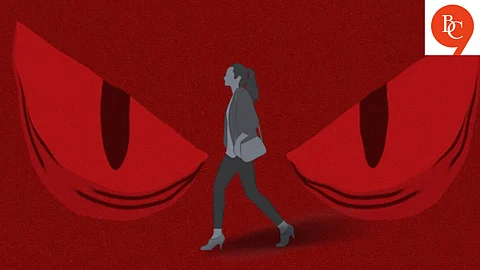

In India, the word "stalking" has long been romanticised in films — think Bollywood heroes following heroines with flowers and cheesy songs. But in real life, stalking is not love. It’s fear, obsession, and often the first red flag before a violent crime.
The Reality Check
According to the National Crime Records Bureau (NCRB), over 9,000 cases of stalking were reported in 2022 alone — and these are just the ones that made it to the police station. The actual number, experts say, could be much higher, as many women choose to stay silent due to fear, shame, or lack of faith in the system.
Most stalkers aren’t strangers. In over 60% of cases, they’re acquaintances, ex-partners, or neighbors.
Types of Stalking Women Face Today
Offline Stalking – Being followed, watched, or waited for outside your workplace, school, or home.
Online Stalking – Repeated DMs, fake profiles, location tracking, hacking into personal accounts.
Cyber Harassment – Sending threats, morphed photos, or using social media to publicly shame someone.
Tech-enabled Stalking – Misusing GPS, spyware apps, or location-sharing to track movements without consent.
Signs You Should Never Ignore
Getting repeated calls/messages from someone you’ve blocked or said “no” to
Noticing someone watching you regularly in public
Receiving gifts or letters even after asking them to stop
Sudden friend requests from unknown or fake profiles
Feeling unsafe or anxious about being followed — trust that instinct
What the Law Says
Stalking is a punishable offence under Section 354D of the Indian Penal Code.
First-time offence: Up to 3 years in jail + fine
Repeat offence: Up to 5 years in jail + fine
Cyberstalking is also covered under the Information Technology Act, and can include imprisonment and penalties.
What Every Woman Should Do
✅ Document Everything – Take screenshots, save call logs, and keep messages as evidence.
✅ File a Complaint – Approach your nearest police station or women’s cell. You can also file a cybercrime complaint online at cybercrime.gov.in.
✅ Talk About It – Share your experience with someone you trust. Silence helps the stalker, not you.
✅ Strengthen Digital Boundaries –
Keep social media profiles private
Disable location sharing unless necessary
Regularly update passwords
✅ Use Safety Apps – Apps like Raksha, Himmat, and Eyewatch can alert contacts in emergencies.
A Cultural Shift Is Needed
Stalking is not “flirting” or a sign of “true love.” It’s a form of control, harassment, and emotional abuse. It’s time society stops blaming women for “leading someone on” and starts holding the stalker accountable — whether it’s on the street or in your DMs.
You don’t owe anyone your time, attention, or explanation. If you feel unsafe, speak up — even if your voice shakes. Because your safety matters more than their feelings.
